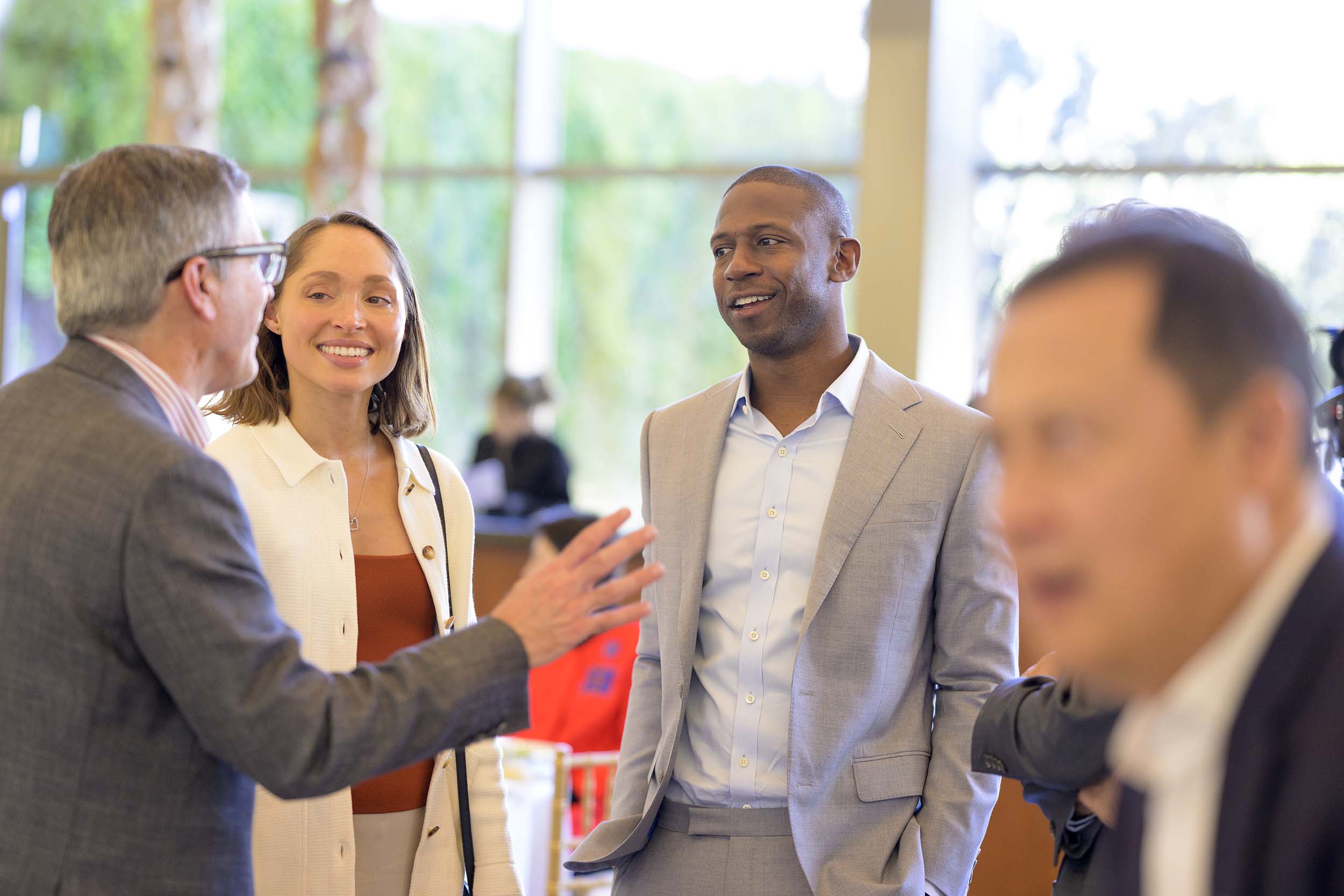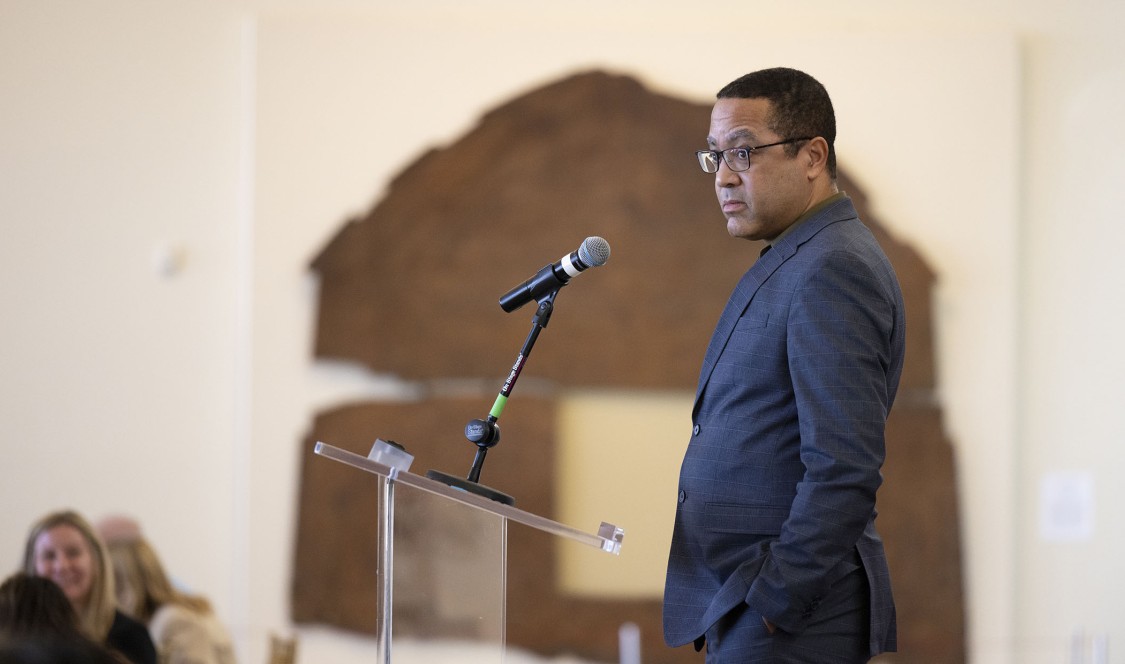Join the dialogue!
Programs like the Valach Speaker Series, offer participants an opportunity to engage in a meaningful way and share a conversation. Interested in joining CMC at special community gatherings while giving back to the College?
Learn more about the Res Publica Society, Crown Society, and 1946 Legacy Partners.

Freedom of expression, viewpoint diversity, and constructive dialogue were at the forefront of a Claremont McKenna College speaker series luncheon, which featured renowned linguist, political commentator, and New York Times Opinion writer, John McWhorter.
Sponsored by the Valach Family—Ken and Jane ’82—and The Open Academy, the special program drew members of CMC’s Res Publica Society, Crown Society, and 1946 Legacy Partners interested in absorbing McWhorter’s talk, “Word Wars: Wokeism and the Battle Over Language.”

As a double bonus for art lovers, the Bowers Museum in the heart of Orange County offered a tour of intriguing works by California artists, as well as exhibits showcasing artifacts from early Los Angeles and cultures around the world. The location also served as an opportunity for some CMC alumni to engage with their alma mater closer to their neighborhoods.
“When I saw this event was happening in my area, I knew I had to take advantage of it,” said Paul Rodriguez ’94. “This is a close second to being back at CMC.”
CMC President Hiram Chodosh introduced McWhorter as “one of the country’s singular voices,” his thoughtful yet outspoken presence helping CMC advance a trajectory “that doubles down on our mission-centric, nationally recognized Open Academy commitments to free expression, viewpoint diversity, and constructive dialogue. The emerging, cloud-clearing North Star for higher education in a society that appears increasingly censorious, dogmatic, and polarized.”

McWhorter spoke later in the evening at the Marian Miner Cook Athenaeum to a standing-room-only audience of engaged students.
During his Orange County talk, McWhorter began by outlining how language challenges are “making it very hard to discuss complex issues these days and complex issues are the ones that are always the most interesting and the most urgent.” Where the problem begins, he said, “is … in the world of language and anthropology and in sociology.” McWhorter zeroed in on how Prescriptivism (attempts to enforce how language should be) is “trying to make us talk in ways that aren’t natural,” he said.
“We’re being taught that there are natural ways of expressing ourselves that we should learn to tamp down, that we should think very hard about the way we say almost anything that once again is genuinely interesting. We're supposed to exist in a fight of ongoing linguistic discomfort,” he continued.
As an example, McWhorter, a professor of linguistics at Columbia University, offered how he often hears young women referring to each other as “Dude” or “You guys,” to the dismay of some older women who view these slang references as an “erasure of femininity.”

“But no, that’s not how it works,” he added. “The reason those women are calling each other ‘Dude’ and saying, ‘You guys” is because gender roles and gender conceptions have changed so much, that ‘guys’ is no longer as gender-specific, as it used to be …‘You guys’ is a reflection of this change, but the thoughts, the conceptions, the assumptions are what changed first, and then the language.”
Madison Friedman ’14, who said he has been reading McWhorter for years, was excited to hear the linguist speak in person. “He’s a great writer and I like how he isn’t afraid to speak the truth,” Friedman said, adding how encouraging viewpoint diversity was one of his favorite aspects of his time at CMC. “People (on campus) wanted to discuss ideas with each other and learn from each other. And I think that makes CMC unique among other schools.”

